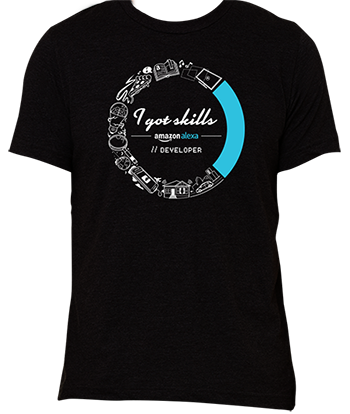Since we added the Amazon Echo to the household last year, it’s been fascinating to see how my children (now 7 and 10) have adapted to “her” presence. The youngest delighted in asking Alexa to tell him corny jokes and, more practically, used the device to time himself when doing his homework. The oldest learned quickly how one needed to ask her questions to yield useful answers. Digital natives, to be sure.
Since then, Alexa has become an integral part of our lives. I use her to entertain me and answer questions while my hands are occupied with cooking or washing dishes. She’s set to remind us of when we should be headed out the door every school day, and we’ve set up a Friday playlist on Spotify — which, of course, include two versions of Rebecca Black’s classic — to cheer us and get us moving on the last day of the work/school-week. I even replaced my bedside alarm clock with a Dot.
So when I started to investigate the idea of Alexa Skills, it was natural that I involved my kids — well, one kid in particular who happens to love trains.
Even though I’m not a coder (though I am trying to learn, step by step), Amazon has made every effort to make Skills as accessible as possible. Skills, for the uninitiated, are little “add-on” capabilities that developers can create for Alexa, extending her abilities enormously. Each Skill must be enabled individually on the Alexa app via a terrible user experience (organized solely alphabetically though you can search and filter).
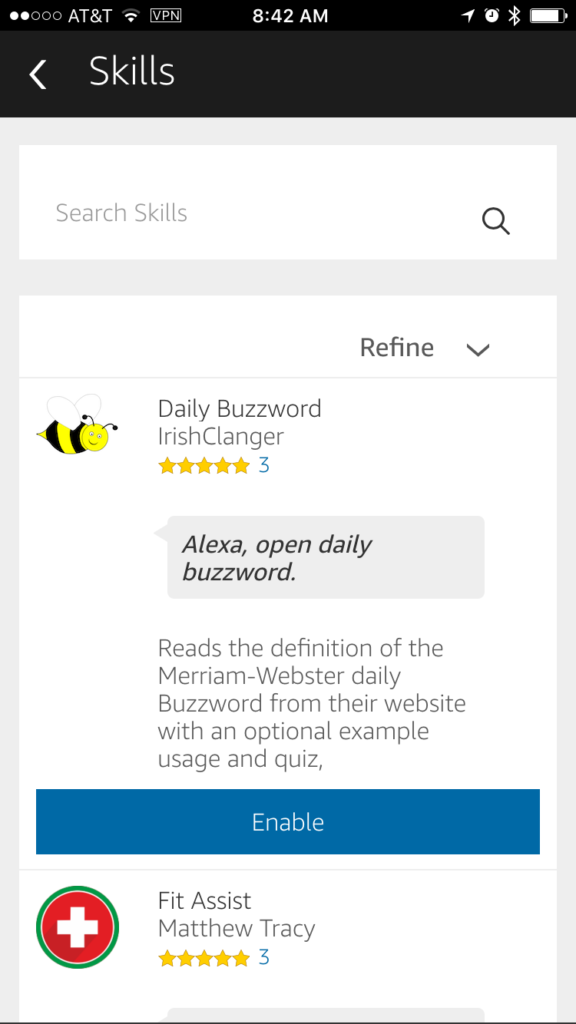
It’s in Amazon’s interest, of course, to encourage developers to go crazy with Skills, including its Smart Home Skills to control IoT devices, so that the device is as useful as possible to as many people as possible.
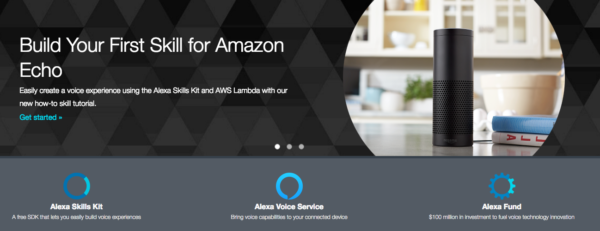
To do this, it’s done everything I could have imagined and more:
- Skills samples on GitHub
- Step by step instructions on how to create your first Skill of various types
- Offering free T-shirts to developers
With these resources, even I, a non-coder, could build an Alexa skill, with the help of my son, who provided the content. So, we made it a weekend project. He came up with questions and multiple choice answers related to one of his favorite subjects — Thomas the Tank Engine — and I figured out how to plug those questions into a Trivia Skill. We were able to test the Skill both on a web interface, where we typed the voice input, and on our own Echo, which we designated as a “test” device.
At this point, he’s not learning the coding himself, but he’s learning empowerment — one can interact with and create content for devices, rather than solely use them or be entertained by them. He’s also discovering that computers have certain limitations and require certain ways of thinking.
After we submitted our first effort for review, there was quite a lot of back and forth, mostly involving intellectual property issues but also others related to functionality and voice interface requirements. The review team was super helpful when it came to pinpointing the things we needed to fix. And finally, it was revealed!
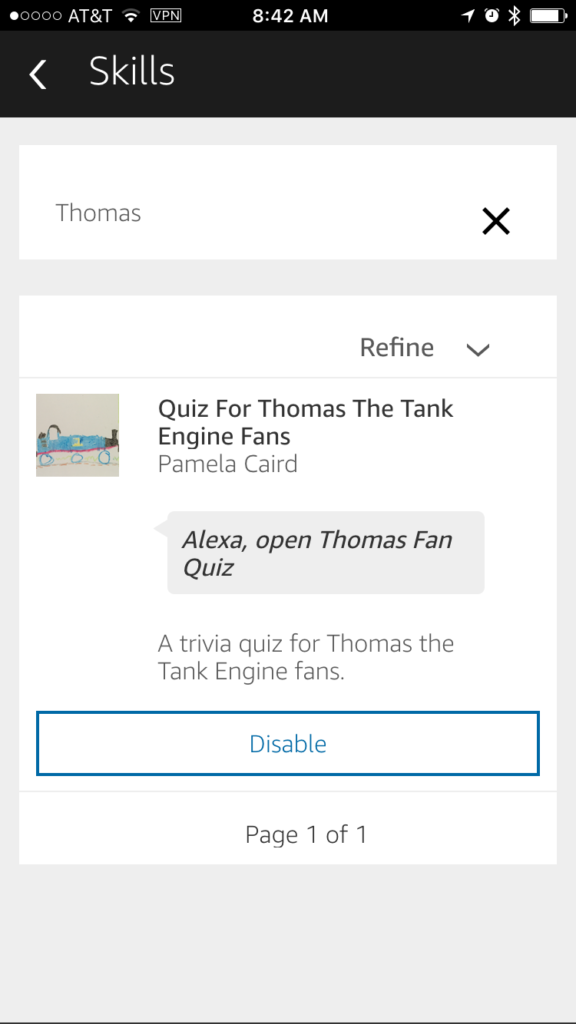
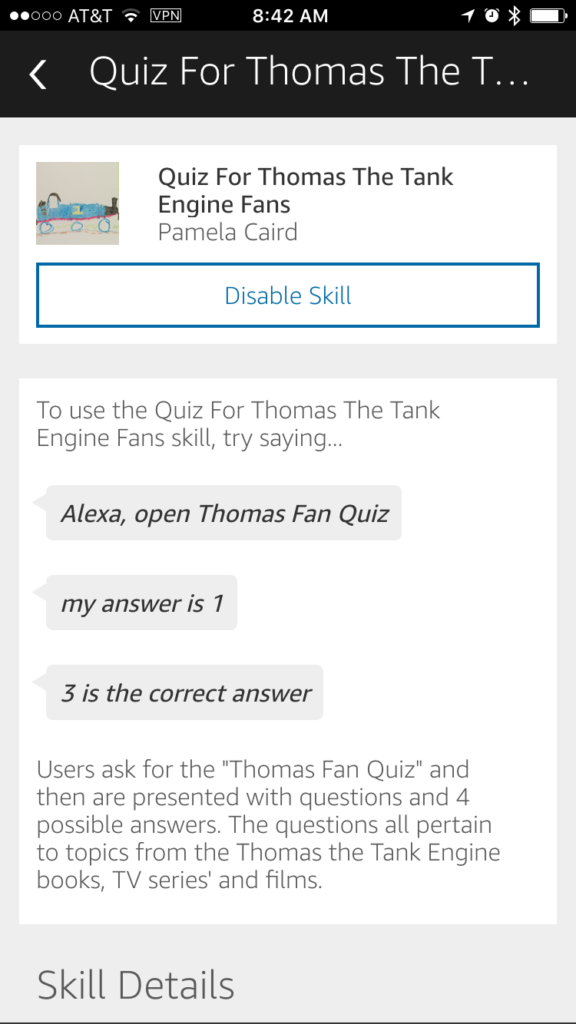
Please check it out with your own Thomas fan and let us know what you think. We started with just a few questions, but we’ll probably update to add more eventually. I’ve got an idea for another Skill, too, that I think will be more interesting to a larger audience. And now we just wait for our developer t-shirt.
